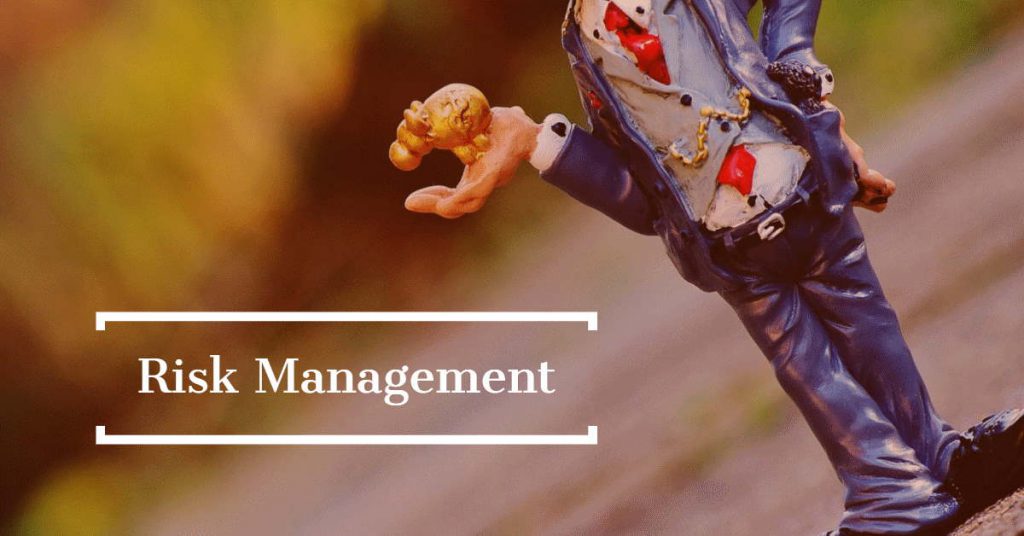In the Forex market, it is crucial to fully understand the risks involved when trading and knowing how to act upon it to ensure a long and lucrative career as a trader. There are only two possible outcomes from every trade, which results in either a profit or loss. While you wouldn’t be able to control these outcomes, remember that losses are always a part of trading and the best you can do is to employ proper risk management in your trades to prevent such as much as possible.
Proper risk management, in other words, is limiting how much you are prepared to risk in trade in regards to the percentage of your available investment funds in addition to knowing how much you would hope to make in a deal in advance.
This guide will hopefully give you a much greater understanding of risk management and provide insights on how traders set their goals and stop-loss limits when trading in the Forex market.
Risk Management: Frequently Asked Questions
Below is a range of frequently questions and answers about risk management during trading on the Forex market.
- Can sign-up bonuses help reduce risk?
When signing up to a Forex broker as a new client, you may be offered a bonus that will allow you to maximize your initial deposit which would, in turn, limit the element of risk.
However, do keep in mind that you should fully understand how these bonuses are defined and implemented into the trading platform as they differ among every Forex broker and some bonuses could be much more generous in the offer than others.
- How does Hedging help in reducing risk?
A trader can choose another way to employ risk management when trading is to hedge the trade. This tactic is considered to be an advanced investing strategy though the principles are relatively simple.
A hedge is an investment that protects your finances from a risky situation. However, while there will always be a level of investment requirements when hedging your trades, the overall risk involved would be significantly reduced. One way to do this is to claim bonuses from more than one broker and use these bonus funds to hedge your trades.
Do remember that when you consider hedging your trades, you must have the proper knowledge in what you are doing; otherwise, making a mistake may prove to be very expensive.
- Is it possible to increase the value of my deposit?
As we have mentioned above, Forex brokers usually offer bonuses to traders who can claim it after they have signed up to their trading platforms for the first time and have made an initial deposit.
These bonuses can differ depending on the Forex broker, but most of them allow you to increase the value of your trading budget which will, in turn, increase your ability to place multiple trades and hence increase your chances of gaining profit.
- What kind of opportunities can I get out of Demo Trading Accounts?
Almost all Forex brokers feature a demo trading account where you can opt to use alongside your real trading account. Demo trading accounts are suitable for traders who are new to the platform and would like to experience and familiarize themselves with the features the trading platform has to offer.
As the demo account is merely a simulation in nature, traders can place as many no-risk trades as they like which is perfect for any novice traders who would want to get an idea on how the market moves and how to react to it.
- Are there benefits when Trading in a Group?
Forex traders often tend to build relationships with other traders in their community and will form a group with their friends, work colleagues, and family members to reduce the element of risk involved. In the world of business, this group is called a syndicate.
However, one must be aware of the terms and conditions regarding the number of accounts that can be used in one address through separate devices. When forming such a syndicate, it is essential to follow the broker’s rules to avoid any legal trouble.
- What is a Deposit Limit?
One final aspect to remember is that all Forex brokers that are licensed and regulated will allow you to set your deposit limits and if given the liberty to control the amount you deposit over numerous trading sessions, it would be wise to set realistic and sensible deposit limits on your account before you start trading.
Deposit limits are thresholds that, when reached, would prevent you from trading any further until a time you have set expires and you can resume trading again. These limits can ensure that you do not carry on depositing and will minimize your chances of incurring significant losses.
The decision to set deposit limits is, of course, entirely up to the trader which can include how much they can deposit over some time and how long can they resume their trading session after the threshold has been reached.
